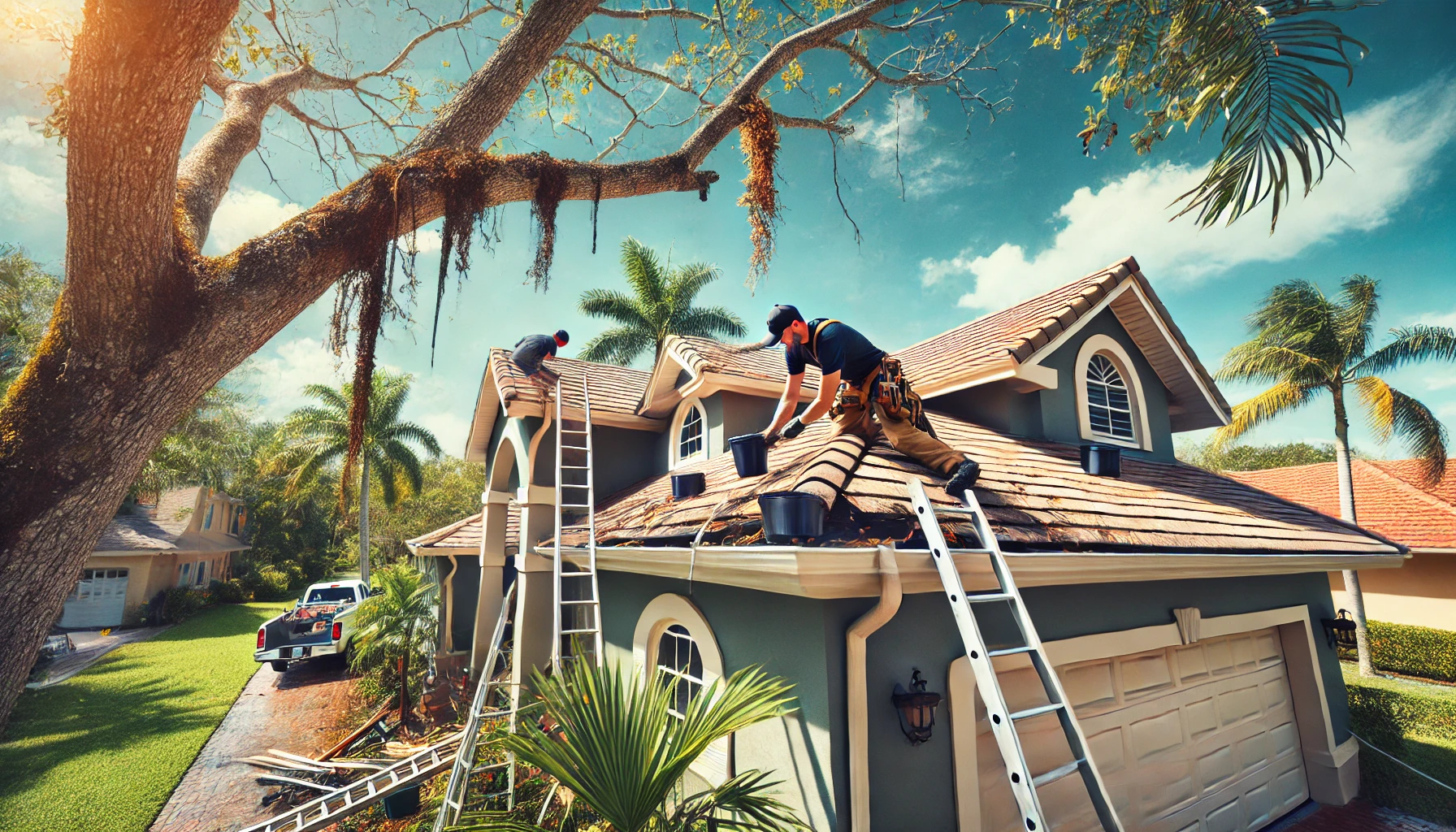Introduction
When most people think of winter roofing problems, they often imagine heavy snow, ice dams, or freezing temperatures. However, Florida’s unique climate presents its own set of challenges, even during the winter months. With mild winters, Florida homeowners don’t have to worry about the typical snow and ice damage, but other factors, like hurricanes, heavy rains, and humidity, still pose risks to the roof’s integrity.
Proper winter roof maintenance is essential for ensuring your home remains safe and dry throughout the season. In this article, we’ll cover five crucial tips for maintaining your Florida roof during the winter months.
Inspect Your Roof for Hurricane Damage
While Florida doesn’t experience the extreme winter conditions found in northern states, the aftermath of hurricane season can leave roofs vulnerable. If your roof has weathered a hurricane, it’s essential to inspect it carefully for any lingering damage. Roofing winter preparation for commercial buildings should always include a thorough inspection after a hurricane to ensure that the structure can withstand the upcoming winter season. Wind, rain, and flying debris during a hurricane can cause significant wear and tear on roofing materials, leaving your roof susceptible to leaks, weakened areas, and long-term damage. Even though Florida’s winter months are typically mild, any existing vulnerabilities from hurricane damage can worsen with the additional moisture or temperature fluctuations.
What to Look For:
-
Missing Shingles or Tiles: After a hurricane, strong winds may have dislodged shingles or tiles. Missing sections need immediate attention to prevent leaks.
-
Dented or Cracked Roof Materials: High winds and debris can dent or crack roofing materials, compromising their ability to protect your home.
-
Water Stains or Leaks: If you notice water stains on your ceiling or walls after a storm, it may indicate that your roof is leaking. Leaks should be fixed as soon as possible to prevent water damage inside your home.
Why It’s Important:
Hurricane damage can worsen over time, especially with Florida’s frequent rain and high humidity. Addressing any issues before winter ensures your roof is in top condition for the season.
Clean and Clear Gutters and Downspouts
Florida’s rainy season may be over by winter, but the risk of clogged gutters and downspouts still exists. Leaves, twigs, and debris can easily accumulate, blocking water flow and causing water to pool on the roof. This can lead to leaks, roof damage, and even the formation of mold and mildew.
Preventing Water Damage:
-
Remove Debris: Clean out all debris from your gutters to ensure they’re free-flowing. This prevents water from backing up and damaging the roof or home’s foundation.
-
Inspect Downspouts: Make sure downspouts direct water away from the base of your house to avoid flooding or erosion.
-
Consider Gutter Guards: If your home is surrounded by trees, 4 gutter guards can help minimize the frequency of cleaning by keeping debris out of your gutters.
How to Clean Gutters Safely:
-
Use a ladder with proper safety precautions, or hire a professional to clean your gutters and downspouts, especially if your home has multiple stories.
Tip 3: Check for Mold, Algae, and Mildew Growth
Florida’s high humidity levels make it a prime environment for mold, algae, and mildew growth on roofs. These organisms can deteriorate roofing materials, block drainage systems, and negatively impact the aesthetics of your home. Regular inspections are crucial to identifying and preventing growth.
Identifying Mold and Mildew:
-
Black Streaks or Green Discoloration: Algae often appear as green streaks along the roof, while mold and mildew may appear as darker spots.
-
A Musty Smell: If you notice a musty odor in your attic, this may indicate mold or mildew growth on the roof.
Treatment and Prevention:
-
Roof Cleaning: Power washing or using a safe roof cleaning solution can help remove mold and algae. Be sure to hire professionals who understand the best cleaning methods for your roof type.
-
Algae-resistant Shingles: Consider installing algae-resistant roofing shingles to prevent future growth, especially if your area is prone to high humidity.
Ensure Proper Roof Ventilation
Proper ventilation is a vital but often overlooked part of roof maintenance, even in Florida’s mild winters. Without adequate airflow, moisture can build up in the attic, creating an environment conducive to mold growth, wood rot, and damage to roofing materials.
Why Roof Ventilation Matters:
-
Prevents Moisture Buildup: Florida’s humidity can cause excess moisture to accumulate in the attic. Proper ventilation allows this moisture to escape, reducing the risk of mold.
-
Regulates Temperature: Proper airflow helps regulate attic temperatures, preventing the buildup of heat that can lead to roof deterioration.
Tips for Improving Ventilation:
-
Inspect Vents: Ensure attic vents are clear of debris and are functioning correctly. Consider adding more vents if airflow is inadequate.
-
Check Insulation: Proper insulation works hand-in-hand with ventilation. Ensure your attic is well-insulated to help maintain a consistent temperature.
Trim Overhanging Tree Branches
Florida homeowners are no strangers to high winds and storms, especially during hurricane season. Overhanging tree branches can be a serious hazard to your roof during these conditions, as they can break off and damage the shingles or tiles.
How to Safely Trim Trees:
-
Remove Dead or Weak Branches: Trim any overhanging or dead branches that could fall on your roof during a storm.
-
Keep Trees Away from the Roof: Branches that hang too close to your roof can rub against the shingles and cause wear and tear. Make sure trees are properly maintained and away from the roofline.
Conclusion
Winter roofing maintenance in Florida may not require the same precautions as in colder climates, but it’s still essential to address specific concerns like hurricane damage, mold growth, and roof ventilation. By following these five tips, you can ensure your Florida home’s roof remains in excellent condition, ready to withstand the challenges of both winter and the upcoming storm season. Staying proactive with your roof maintenance will help you avoid costly repairs and ensure your home is protected year-round. Don’t wait schedule a professional roof inspection today to keep your home safe and secure this winter season.



